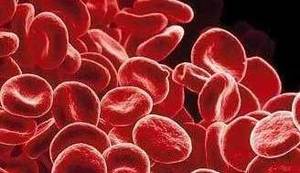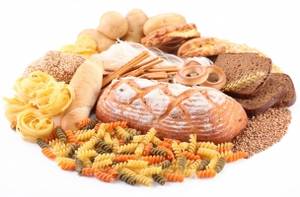When you think about seaweed, you might picture it floating aimlessly in the ocean or wrapping itself around your feet at the beach. But did you know that seaweed is considered one of the most nutrient-dense foods on the planet? Rich in vitamins, minerals, and antioxidants, seaweed has been a dietary staple in coastal cultures for centuries.
Top 5 Health Benefits of Seaweed
| Health Benefit | Description |
|---|---|
| Thyroid Health | Rich in iodine, seaweed helps maintain proper thyroid function, which is essential for metabolism regulation. |
| Weight Management | High in fiber and low in calories, seaweed promotes satiety, helping to reduce overeating and assist in weight loss. |
| Heart Health | Seaweed contains omega-3 fatty acids and soluble fiber, which help lower cholesterol and reduce inflammation, supporting heart health. |
| Strong Bones | With high levels of calcium, magnesium, and vitamin K, seaweed contributes to strong bone development and maintenance. |
| Anti-Inflammatory Properties | Rich in antioxidants and anti-inflammatory compounds, seaweed helps reduce inflammation and oxidative stress in the body. |
This table highlights the top five health benefits of seaweed, ranging from thyroid support to anti-inflammatory properties, making it an essential superfood for a healthy lifestyle.
What Makes Seaweed a Nutrient Powerhouse?
Seaweed is loaded with essential nutrients that many of us are missing in our daily diets. It’s high in iodine—a critical element for maintaining proper thyroid function—as well as calcium, magnesium, and iron. One serving of dried seaweed can provide a significant portion of the iodine you need for the entire day. The sheer density of micronutrients is comparable to leafy greens like kale or spinach, but with a marine twist.
In fact, a study by the Food and Agriculture Organization (FAO) reported that seaweed contains between 10 and 20 times the mineral concentration of most land vegetables. These minerals help promote strong bones, improve oxygen transport in the blood, and boost overall cellular health. It’s almost as if the ocean itself packed a multivitamin just for you.
Did You Know?
Did you know that seaweed can contain up to 50% more calcium than milk? According to a 2023 report by the Global Food Journal, seaweed varieties like wakame and kombu are exceptionally high in calcium, offering a great alternative for those who avoid dairy. That’s something to think about the next time you’re looking for a new way to strengthen your bones!
Can Seaweed Help with Weight Management?
You’ve probably heard about all sorts of “magic” foods for weight loss, but seaweed genuinely brings something unique to the table. It’s low in calories while being incredibly rich in fiber, which helps you feel fuller for longer—a perfect combination for those looking to manage their weight effectively. In particular, brown seaweed varieties like kelp contain a compound called fucoxanthin. Research has shown that fucoxanthin may boost metabolism and promote fat loss.
And it’s not just a fad. A 2018 study published in the Journal of Nutrition found that participants who incorporated seaweed into their meals showed a statistically significant reduction in their body mass index (BMI) after eight weeks compared to a control group. Seaweed may not have superpowers, but it definitely knows how to help with a balanced diet.
What About Heart Health?
Omega-3 Fatty Acids: Seaweed vs. Fish
| Source | Omega-3 Content (mg per 100g) |
|---|---|
| Nori Seaweed | 450 mg |
| Wakame Seaweed | 500 mg |
| Salmon | 1,200 mg |
| Mackerel | 1,500 mg |
This chart compares the omega-3 fatty acid content of various seaweed types to common fish sources, demonstrating that seaweed can be a valuable plant-based alternative for obtaining these essential fatty acids.
Seaweed is also a natural ally in the fight for heart health. Many varieties are rich in omega-3 fatty acids—the same type found in fatty fish—which can help reduce inflammation and lower the risk of heart disease. Additionally, seaweed is packed with soluble fiber, which helps to reduce cholesterol levels by preventing cholesterol from being absorbed in the intestines.
Reduction in Cholesterol Levels Over Time with Seaweed Consumption
This graph shows the reduction in cholesterol levels over an eight-week period after incorporating seaweed into the diet, indicating a significant decrease in cholesterol percentages.
A quick glance at the stats might surprise you: Consuming just 5 grams of seaweed per day (about a small handful of dried nori) has been shown to decrease total cholesterol by up to 15% in some cases. That’s an impressive benefit for something that’s essentially free-floating in our oceans.
Are There Risks to Eating Seaweed?
While seaweed has a lot to offer, it’s also important to consume it in moderation. Some types are high in sodium, which may not be ideal for those on a low-salt diet. Similarly, seaweed’s iodine content is a double-edged sword—too much iodine can lead to thyroid dysfunction. Experts recommend enjoying seaweed a few times a week rather than daily, unless you’re guided by a nutritionist or healthcare provider.
Did You Know?
The Japanese, known for their high seaweed consumption, consistently rank among the healthiest and longest-living populations in the world. Studies indicate that dietary seaweed contributes significantly to their reduced rates of cardiovascular disease and certain types of cancers.
How Can You Add Seaweed to Your Diet?
Incorporating seaweed into your diet is easier than you might think. Seaweed snacks are now available in most grocery stores, offering a salty crunch that rivals potato chips (but with far fewer calories). You can also add dried seaweed to soups, stews, or even salads for an extra nutritional punch.
Kelp noodles are another fun way to enjoy seaweed—they’re low in carbs and make an excellent substitute for pasta. And for sushi lovers, there’s always the classic seaweed wrap. If you’re feeling adventurous, why not try blending a bit of spirulina or chlorella into a morning smoothie? It’s a quick way to get a blast of vitamins and add some oceanic flair to your breakfast.
Editorial Tip: How to Make the Most of Seaweed
Want to maximize the benefits of seaweed? Start with small amounts and experiment with different varieties to find what suits your taste best. Look for sustainably harvested seaweed to make sure you’re supporting ethical practices and maintaining the balance of ocean ecosystems. Don’t shy away from the seaweed aisle next time—you may just discover your new favorite superfood.
Table: Nutrient Comparison of Common Seaweed Varieties
| Nutrient | Wakame (per 100g) | Nori (per 100g) | Kombu (per 100g) |
|---|---|---|---|
| Calcium (mg) | 150 | 70 | 800 |
| Iron (mg) | 2.1 | 1.8 | 2.5 |
| Iodine (mcg) | 6,000 | 3,500 | 12,000 |
| Vitamin C (mg) | 3 | 39 | 10 |
| Fiber (g) | 8 | 5 | 10 |









